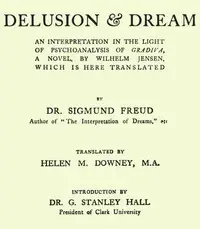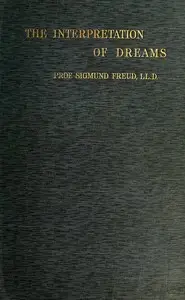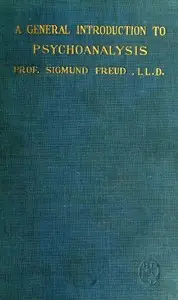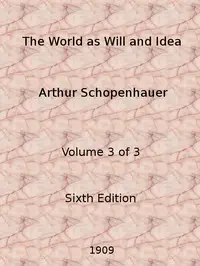"Delusion and Dream: An Interpretation in the Light of Psychoanalysis of "Gradiva" by Sigmund Freud is a scientific publication written in the early 20th century. The work serves as a commentary on Wilhelm Jensen's novel "Gradiva", intertwining elements of psychoanalysis with literary analysis. The text explores themes of desire, memory, and the unconscious, particularly through the character of Norbert Hanold, a young archaeologist who becomes obsessed with a bas-relief depicting a figure he names Gradiva. The opening of the book introduces Norbert Hanold, who is captivated by a bas-relief of a young woman he encountered during his studies in Rome. This figure, whom he imagines walking gracefully through ancient Pompeii, becomes the object of his fascination and desires. As Hanold grapples with his feelings for Gradiva, the text delves into the connections between his dreams and waking life, foreshadowing his psychological journey. The narrative hints at his search for a deeper understanding of this enchanting figure, setting the stage for themes of restoration and psychological transformation that Freud aims to elucidate through psychoanalysis. (This is an automatically generated summary.)

Delusion and Dream : an Interpretation in the Light of Psychoanalysis of Gradiva
By Sigmund Freud
Translation of: Der Wahn und die Träume in W. Jensens "Gradiva."
Genres
Released
2014-02-15
Formats
epub (images)
epub3 (images)
epub
mobi (images)
mobi
Free Download
Overview
About the Author
Sigmund Freud was an Austrian neurologist and the founder of psychoanalysis, a clinical method for evaluating and treating pathologies seen as originating from conflicts in the psyche, through dialogue between patient and psychoanalyst, and the distinctive theory of mind and human agency derived from it.
Total Reviews
10.0k
Total reviews from Goodreads may change


















